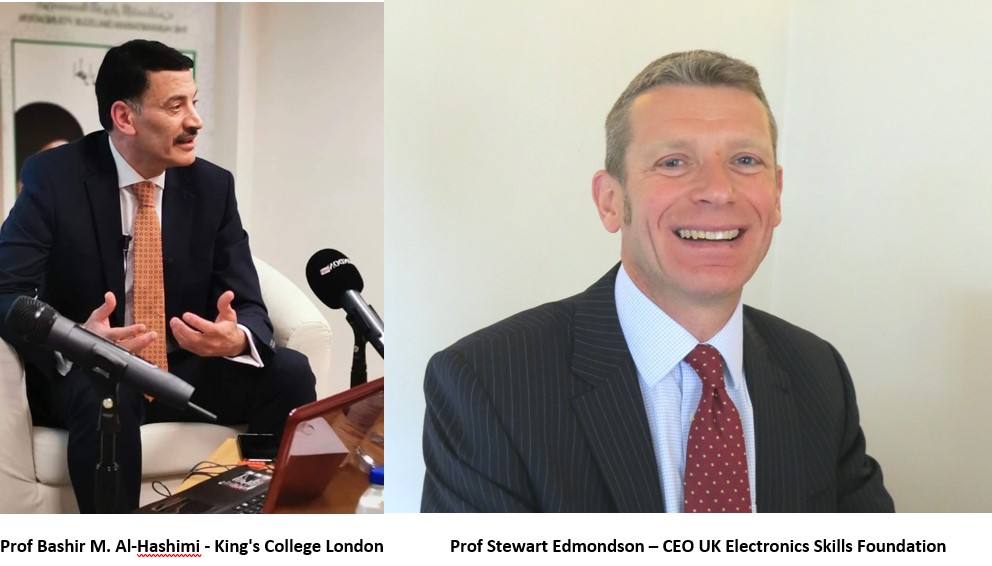
We know that more and more young people are interested in Engineering. As a recent example, the engaging videos from the This Is Engineering campaign led by the Royal Academy of Engineering have already been watched over 38 million times, with 90% of the video views were by young people aged 13-17. It is particularly pleasing to note that 50% of the audience have been female. Furthermore, in 2019 Engineering UK reported that almost 55% of 11-14 year olds would consider a career in Engineering; this is a 12% increase since 2015 when this figure was only 43%.
Following the 2017/18 restructuring of GCSE science, there has been a substantial increase in take-up rates for the individual sciences and this has been reflected in A-Level entries; STEM subjects now comprise four of the top 10 most popular subjects. This is all encouraging. However, this increased interest and take-up are not yet being translated into increased numbers of students enrolling on courses in engineering undergraduate courses. According to data from UCAS, the combined number of UK domiciled students starting Mechanical, Civil and Electrical/Electronics Engineering degrees in the last 5 years has been relatively static. On the other hand, in the same period, the number of females starting General Engineering degrees increased by 24% (to 1145). This reflects a wider trend, over the last decade we have student numbers on computer science, general engineering and more specialist areas like aerospace engineering increasing, whilst those studying civil and electrical/electronic engineering have not.
So how best should we respond?
It is recognised that young people’s desire to make a difference and to effect change. The UN’s Sustainable Development Goals are the blueprint to achieve a better and more sustainable future for us all. They address the global challenges we face and technology underpins solutions to all of the 17 Goals. The UN’s General Assembly recognised this in their 2015 declaration, which included specific reference to technology having great potential to accelerate human progress through innovation across a whole range of areas diverse as medicine and energy.

Tackling issues such as the climate emergency, accessible healthcare and the environment are a big motivation for young people. So, we need to present Engineering as a ‘caring’ profession, one directly associated with solving problems and making people’s lives better. We need to emphasis the role engineers have in developing the disruptive digital technologies that are fundamental to robotics, autonomous systems, and healthcare and the link to the UN’s Goals.
To support this and to make the most of young people’s motivation, we need curriculum change. We need courses that inspire thinking and creativity; translating ideas through engineering design to innovation that are of benefits to humankind and the planet. Students are enthused by authentic and relevant experiences. In engineering, this is the design project. Projects should be included throughout engineering degree programmes from the beginning to develop skills and to encourage active learning.
Importantly, students need to opportunity to experience engineering in practice, to see engineers ‘in action’ in order to de-mystify the profession and to help explain exactly what an engineer does. The best way to do is through meaningful work placements and internships. Engineering is a profession and development of the required competences can be considered as a process; one that involves an iterative cycle of education, training and experience. It is beholden on universities and industry to work together more to develop programmes that bridge the separation between university and work in a way that provides opportunities. One such scheme that can be held up as an exemplar of best practice in this area is the UK Electronics Skills Foundation (UKESF) and their undergraduate scholarship scheme. Since 2012, over 550 engineering undergraduates have participated in the UKESF Scheme, with work placement being provided by 65 different companies. Of those that have graduated, we know that 93% are engaged in the Electronics and Technology sector.
Bashir M. Al-Hashimi CBE FREng is ARM Professor of Computer Engineering and Dean of the Faculty of Natural and Mathematical Sciences at King's College London. Acknowledged internationally in the field of energy-efficient computing and systems engineering, he founded the Arm-ECS industry-academia centre of research excellence, cited later by EPSRC as an exemplar of industrial collaboration.
Stewart Edmondson CEng FIET is the CEO of the UK Electronics Skills Foundation and a Royal Academy of Engineering Visiting Professor at Aston University. He chairs the IET’s Professional Development Advisory Committee.










Water Sector Talent Exodus Could Cripple The Sector
Well let´s do a little experiment. My last (10.4.25) half-yearly water/waste water bill from Severn Trent was £98.29. How much does not-for-profit Dŵr...